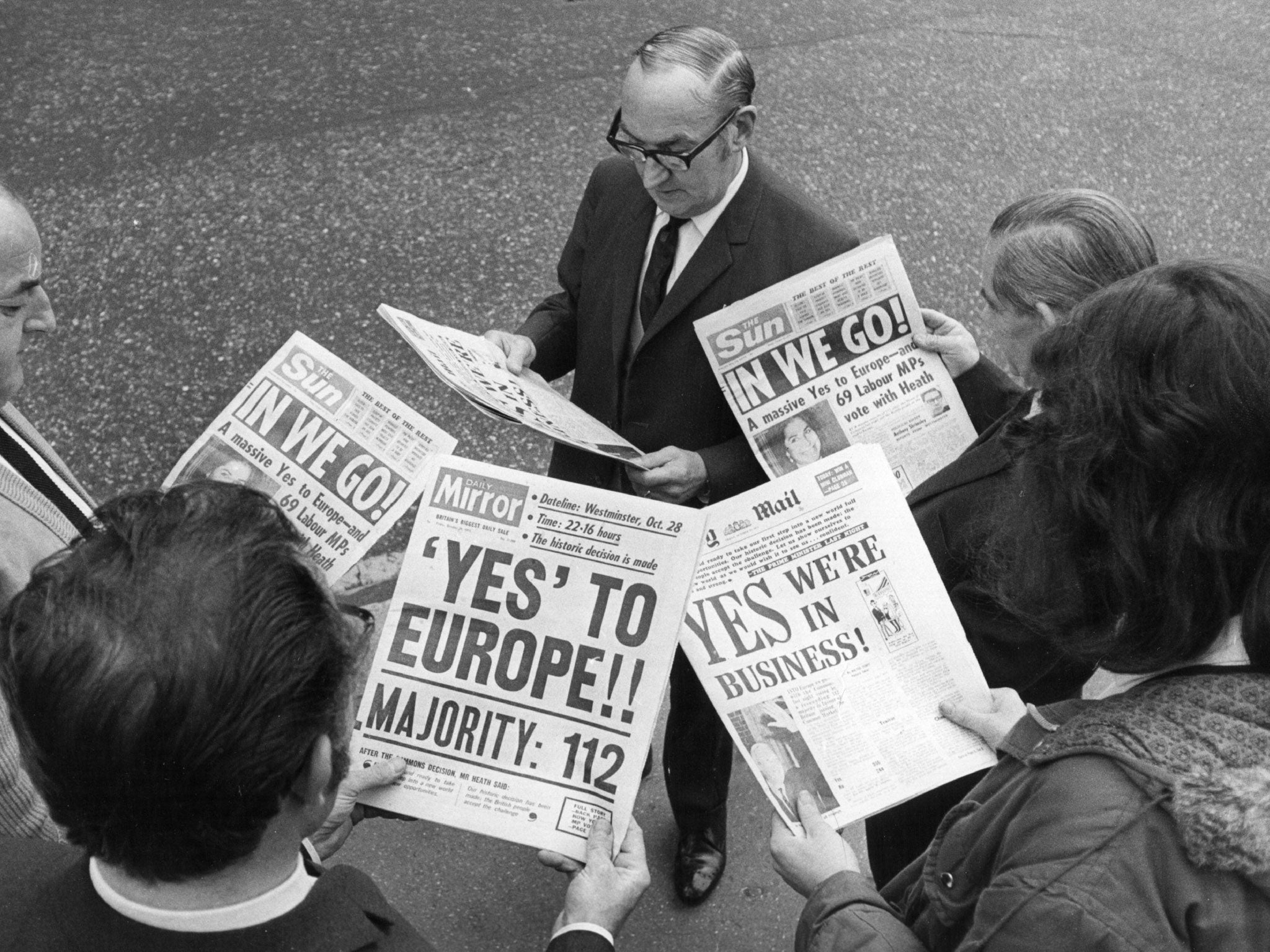Cameron is right on Europe. By chance, not design
The Tory duo at the head of government is forever rewriting the script. That’s showbusiness. So expect more reversals before any referendum


Politicians make it up as they go along. This is obvious, but not always remembered. We tend to assume that everything is part of a plan, even when we can see that the plan has just changed.
David Cameron's speech on Europe last week was the outcome of short-term pressures, mistakes and unintended consequences. It was historic, all right. A promise of a referendum is important; and to promise one on our membership of the EU is one of the most important. But it was not what Cameron intended until recently, and his position will change several more times before we get to a referendum, if we ever do.
That is politics. It was no coincidence that Tony Blair provided the most forceful opposition to Cameron last week. He no longer has to worry about balancing the forces in his party, or what he has said before, or the opinion polls. Ed Miliband, on the other hand, finds it hard to say anything definite. When he did, by mistake – "No, we do not want an in/out referendum" – his words had to be clarified by, among others, Ed Balls today: "I'm not saying no to a referendum at all."
Not so Blair, who was incredulous: why would a prime minister put the possibility of Britain leaving the EU – with its attendant uncertainty – "on the table"? Cameron's speech "reminds me a bit of the Mel Brooks comedy Blazing Saddles," Blair said. "The sheriff … holds a gun to his own head and says, 'If you don't do what I want I'll blow my brains out.'"
Never mind that the sheriff's tactic worked, it was a striking analogy. But when Blair was in government, policy-making was just as disorganised and reactive. Nor was he above offering referendums for short-term electoral purposes. He did so on the euro in 1996, to match John Major's promise, and he did so on the European constitution, to kill it as a problem in the 2005 election. This had the effect of killing it altogether, because Jacques Chirac felt he had to offer a referendum too, which he lost.
It is not that some politicians are consistent and others are not. It is that some are better at managing the disarray than others. Cameron and George Osborne have not been good at it. They made the wrong decision in 2009, opposing Labour's plan to rescue the banks. And they have been useless in government at guessing what the economy will do next. Their first-term strategy was to get the pain out of the way and wait for normal growth to resume. Hence the back catalogue of hostages to fortune: that "the good news will keep on coming"; Britain's AAA rating is a vote of confidence; the national debt as a share of income will be coming down by 2015; an in-out referendum would be destabilising.
But this time, forced to think ahead, Cameron may have managed the disarray well. The Europe speech has absorbed a huge amount of No 10's energy in recent months, but he has ended up in a position where, although some of the details are left unclear, the big themes are favourable for him.
Cameron hasn't said what would happen if he fails to secure a renegotiation, as his critics have noticed. This is partly to avoid offending the Germans by appearing to threaten to leave, which they regard as unfriendly. But also because he knows that a renegotiation on British terms is most unlikely. Indeed, any treaty changes for the whole EU are unlikely. If the eurozone countries need a new treaty to make the euro work, the Germans hope to do it without us, as we discovered when Cameron said no to the fiscal pact in December 2011. But the Prime Minister can worry about that later. For the time being, he is standing up for Britain and intends to "trust the people". As our ComRes poll suggests today, that puts him on the right side of public opinion.
Meanwhile, Cameron and Osborne have been rewriting their story on the economy. Their original strategy finally disappeared down the drain with Friday's -0.3 per cent GDP figure. The Chancellor's response was to say that he was "determined to confront" the problems "so that we can go on creating jobs for the people of this country". In other words, to change the subject. He saw his chance, because it is not only the Government but most economists who cannot explain what is happening to the economy at the moment. If this is a recession, with the fastest job creation of all the main rich economies, Osborne might be tempted to say, let us have more of it.
This was not in the script, any more than an in/out referendum was. Indeed, Cameron quite unnecessarily divided his party, causing 81 Tory MPs to vote against him on precisely that question just 15 months ago. By 2015, let alone 2017, all sorts of things will have changed, and Cameron and Osborne will still not know what they are doing, possibly in opposition.
What Cameron said on Wednesday was historic, but what mattered were the principles of wanting to change the EU and to renew its democratic mandate rather than in its specifics. The specifics are subject to alteration without notice. You may not remember clicking the "Accept" button on that part of the deal, but you did.
Twitter: @JohnRentoul

Join our commenting forum
Join thought-provoking conversations, follow other Independent readers and see their replies